-

 For Hyperpigmentation/ Melasma
For Hyperpigmentation/ MelasmaUltraProtect Fluid Sunscreen | SPF 100+ PA++++
12hr Strong Sun Protection | Dewy Fluid Texture | Sweat/Water-Resistant For 80 MinsPenta Filter TechnologyRegular price ₹ 500Regular priceUnit price per -
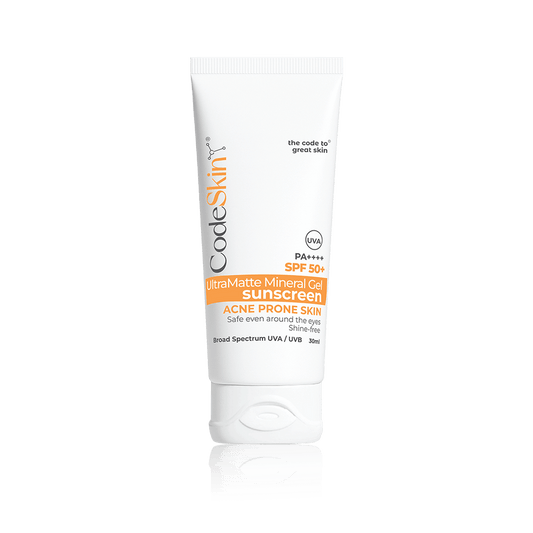
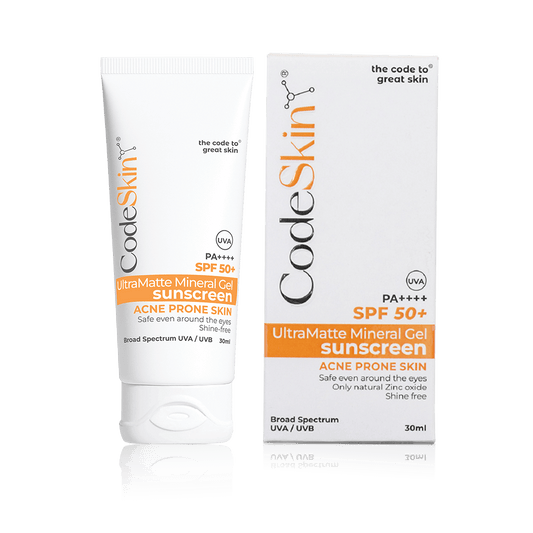 For Acne-Prone Skin
For Acne-Prone SkinUltraMatte Mineral Gel Sunscreen | SPF 50+ | PA++++
Tinted | Gel-Based Texture | Acne healing + Sun ProtectionZinc Oxide | Hinokitiol | Vitamin FRegular price ₹ 1,100Regular priceUnit price per -
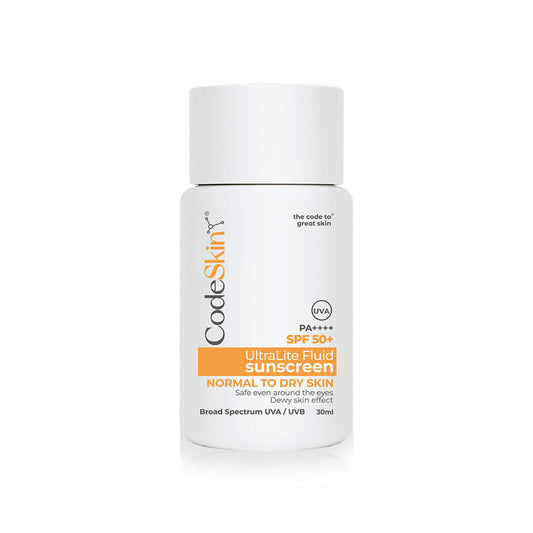
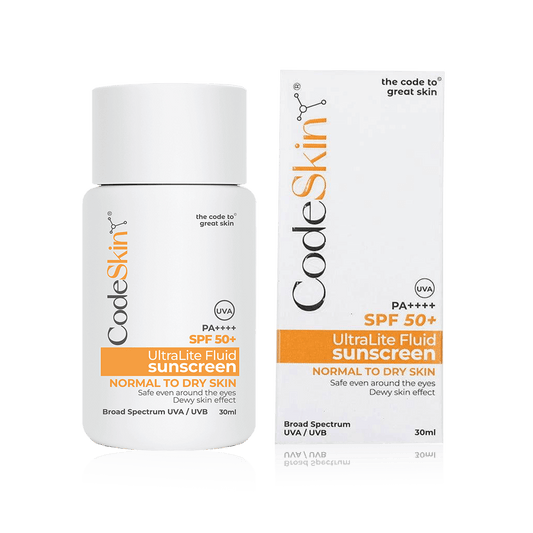 For A Non-Heavy Finish
For A Non-Heavy FinishUltraLite Fluid Sunscreen | SPF 50+ PA++++
Feels Invisible & Lightweight | Dewy Fluid Texture | Sweat/Water-Resistant For 80 MinsHydrating Prebiotics | NiacinamideRegular price ₹ 500Regular priceUnit price per -

 For Oily Skin
For Oily SkinUltraMatte Oil-Free Fluid Sunscreen | SPF 50+
Oil Control Technology | Matte Finish | Fluid TextureNiacinamide for Shine ReductionRegular price ₹ 500Regular priceUnit price per -
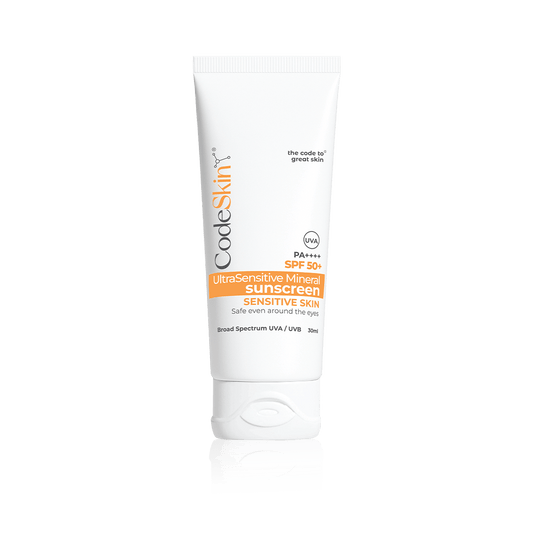
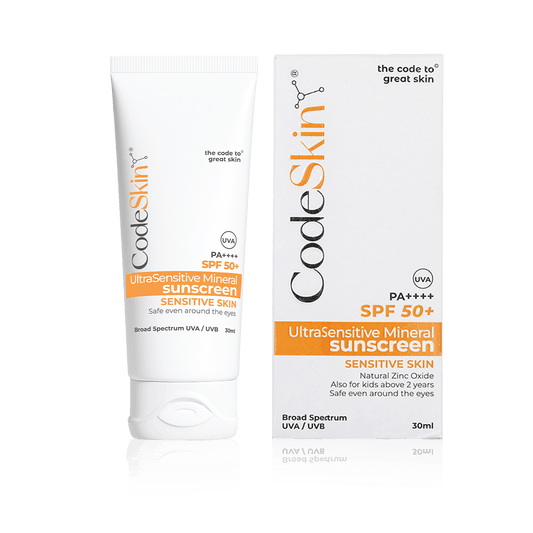 For Sensitive Skin
For Sensitive SkinUltraSensitive Mineral Sunscreen | SPF 50+
Soothing Protection | Tinted Creamy Texture | Safe for Pregnant Women & Kids 2+Zinc Oxide | Pongamia Pinnata Seed ExtractRegular price ₹ 900Regular priceUnit price per -
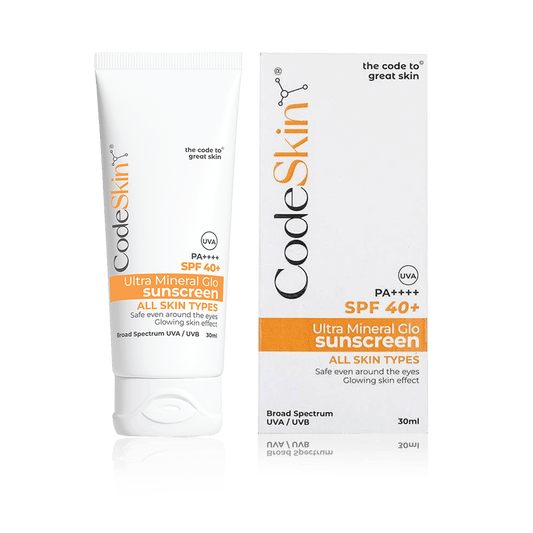
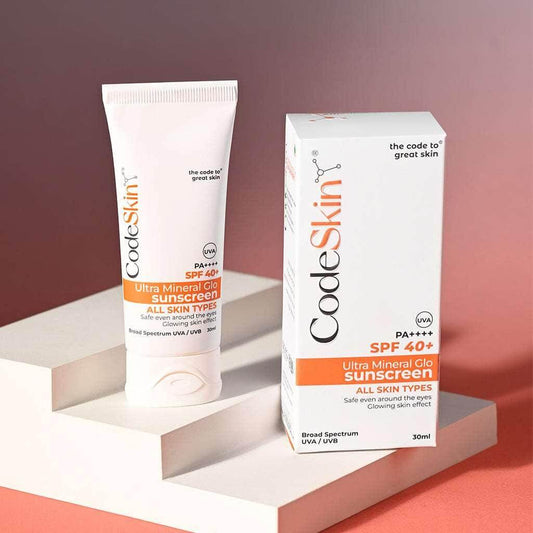 For a Luminous Finish
For a Luminous FinishUltraMineral Glo Sunscreen | SPF 40+
Sun Protection+ Highlighter in 1 | Tinted Creamy Texture | 8 hours MoisturizationNatural Sunscreen BoostersRegular price ₹ 800Regular priceUnit price per
Waterproof Sunscreen - Ultimate Protection for Water Activities
Many of us love enjoying time in the water, whether it’s a day at the beach, a dip in the pool, or an adventurous water sport. However, amidst all this fun, it is crucial to ensure your skin stays protected from the sun’s harmful rays.
Waterproof sunscreen is specially formulated to provide long-lasting protection against UV rays, even when you’re swimming or sweating. This guide will delve into why waterproof sunscreen is essential and how to choose the best product for your aquatic adventures.
Benefits of Water Resistant Sunscreen
Choosing the right sunscreen for water activities is essential to ensure effective protection. Water-resistant options, such as waterproof SPF products, offer several key benefits:
- Enhanced Durability:
Waterproof sun cream is designed to withstand exposure to water, meaning it won’t wash away easily during swimming or sweating. This ensures continuous protection even in the most vigorous activities.
- Long-Lasting Coverage:
Unlike regular sunscreens, waterproof sunblock maintains its effectiveness for a longer period, reducing the need for frequent reapplication. This is especially useful for extended periods spent in the water.
- Reliable UV Protection:
Waterproof SPF formulations are crafted to provide a robust defence against harmful UV rays. This means you can enjoy your water activities without compromising on sun safety.
- Convenience and Peace of Mind:
Using a waterproof sunscreen offers convenience by eliminating the constant worry about reapplying sunscreen. It allows you to focus on enjoying your time in the water rather than frequent touch-ups.
Why is Waterproof Sunscreen Crucial?
When engaging in activities that involve water, whether it’s swimming, surfing, or just a day at the beach, using a water-resistant sunscreen becomes indispensable. Here’s why opting for a water-resistant SPF is essential:
- Effective Protection Against UV Rays:
Water resistant sunblock is formulated to stay intact even when exposed to water. This ensures that your skin receives continuous protection from harmful UV rays, reducing the risk of sunburn and long-term skin damage.
- Stays on Longer:
Regular sunscreens can easily wash away or become less effective after swimming or sweating. Water resistant sunscreen, however, is designed to maintain its protective layer, providing reliable defence throughout your water activities.
- Reduced Need for Frequent Reapplication:
With water resistant SPF products, you don’t have to worry about frequent reapplications. This convenience allows you to enjoy your time in the water without interrupting your fun to reapply sunscreen.
- Enhanced Skin Safety:
By choosing water resistant sunblock, you ensure that your skin remains safeguarded against sun exposure, even in challenging conditions.
How do you Apply Waterproof Sunscreen?
Applying water-resistant sunscreen correctly is key to ensuring you receive maximum protection during water activities. Follow these steps for optimal results:
- Choose the Right Product:
Start by selecting a high-quality water resistant SPF that suits your needs. Ensure it provides broad-spectrum protection against both UVA and UVB rays.
- Apply Generously:
Before heading out, apply a generous amount of water resistant sunscreen to all exposed skin. For adults, about one ounce (a shot glass full) is recommended to cover the entire body.
- Apply Before Water Exposure:
For best results, apply the sunscreen at least 15 to 30 minutes before you enter the water. This allows the product to fully absorb and form an effective protective layer.
- Reapply as Needed:
Even though water resistant sunblock is designed to stay on longer, it’s essential to reapply after swimming, sweating, or towel drying. Most products recommend reapplying every 2 hours or more frequently if you’re engaging in intense water activities.
- Pay Attention to Key Areas:
Don’t forget to cover often-missed areas like over the eyelids, the ears, back of the neck, and feet. These spots are particularly prone to sunburn and should be protected with your SPF.
When You Should Use Water Resistant Sunscreen
Using water-resistant sunscreen is crucial in specific situations to ensure you maintain effective sun protection. Here’s when you should opt for sweat proof sunscreen or waterproof sunscreen:
- During Water Activities:
When you’re swimming, whether in a pool, lake, or ocean, using waterproof sunscreen for swimming is essential. These products are specially formulated to stay effective even when submerged in water, offering consistent protection throughout your swim.
- When Engaging in Intense Exercise:
If you’re participating in activities that cause heavy sweating, such as running or playing sports, a sweat-proof sunscreen is crucial. This ensures that the sunscreen remains intact and continues to shield your skin from harmful UV rays despite the perspiration.
- On Hot and Humid Days:
Even if you’re not swimming or exercising, high heat and humidity can cause sunscreen to break down faster. In such conditions, opting for water proof sunscreen for swimming to help maintain its effectiveness against sun exposure.
- For Long-Lasting Protection:
For extended periods outdoors, especially near water bodies or during vigorous activities, using waterproof sunscreen ensures long-lasting protection. It minimizes the need for frequent reapplications and provides reliable defence against UV rays.
Key Factors to Consider When Choosing the Best Waterproof Sunblock
Selecting the right waterproof sunblock is essential for ensuring effective sun protection during water activities. Here are some key factors to consider when looking for the best water resistant sunscreen:
- SPF Rating:
The SPF rating indicates the level of protection against UVB rays. For optimal sun protection, choose a product with a high SPF to shield your skin from sunburn and long-term damage.
- Water Resistance Duration:
Check the water resistance claims of the sunscreen. The best waterproof sunscreen for swimming should offer protection for an extended period, usually up to 80 minutes.
- Broad-Spectrum Protection:
Ensure the sunscreen provides broad-spectrum protection, meaning it guards against both UVA and UVB rays. This is crucial for comprehensive skin protection and is a feature of the best waterproof sunscreen options.
- Skin Type and Sensitivity:
Consider your skin type and any sensitivities when choosing a sunblock. Opt for products labelled as hypoallergenic or designed for sensitive skin if needed.
- Ingredients:
Look for sunscreens with ingredients that suit your needs. Mineral-based sunscreens with zinc oxide or titanium dioxide are often recommended for sensitive skin, while those with chemical filters can offer high protection levels.
Buy the Best Waterproof Sunscreen Online at CodeSkin
Shop CodeSkin for the ultimate selection of waterproof sunscreens that ensure long-lasting protection. Enjoy the ease of online shopping and find the perfect water-resistant sunblock for all your outdoor adventures.
FAQs on Waterproof Sunscreen
The most water-resistant sunscreens are those labelled as "80 minutes" or higher for extended protection in water.
While no sunscreen is entirely waterproof, "water-resistant" sunscreens are designed to remain effective for a certain period when exposed to water.
The best type of sunscreen for water activities is water-resistant sunscreen, which offers prolonged protection against UV rays even when exposed to water or sweat.
Swimmers often use water-resistant sunscreens specifically formulated to stay effective during prolonged exposure to water, ensuring reliable UV protection while swimming.













 Home
Home Shop
Shop Profile
Profile